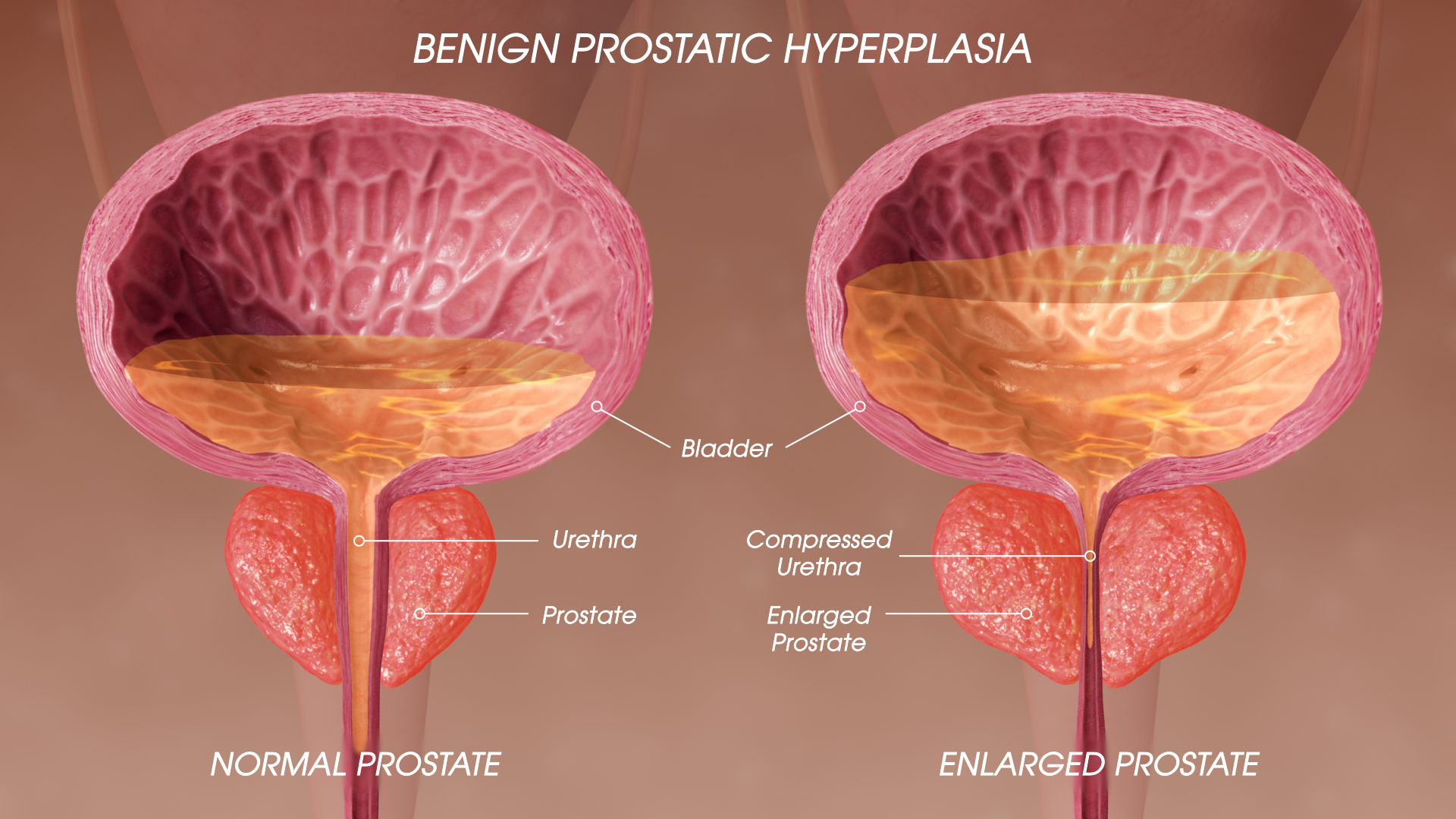The prostate is a part of the male reproductive system and a small in size. It is a muscular gland that surrounds the urethra and most of the fluid in the semen is produced by it. The muscular action of the prostate gland also helps in pushing the semen and the fluid through the penis during sexual activity. As men get older, this gland gets bigger. This enlargement of the gland can lead to a condition called benign prostatic hyperplasia (BPH). It could cause symptoms that affect the quality of life.
Symptoms
In BPH the urethra gets squeezed. The most common signs and symptoms of BPH are :
- Difficulty starting urination
- Frequent need to urinate
- Dribbling at the end of urination
- Urinating more frequently at night
- Inability to empty the bladder completely
- Painful urination
- Blood in the urine
- Weak urine stream
- Inability to urinate
Causes
Enlargement of the prostate gland is the main cause for getting benign prostatic hyperplasia. It is considered to be a normal aging process. Certain other conditions can also lead to symptoms which are similar to the ones experienced with an enlarged prostate. These conditions are :
- Narrowing of the urethra
- Inflammation of the prostate
- Urinary tract infection
- Stones in the kidneys or the bladder
- Problem with nerves that control the bladder
- Bladder or prostate cancer
Treatment
A wide range of treatments are available for enlarged prostate. These are usually medications, minimally invasive therapies and surgery. The treatment would depend upon various factors. Some of these factors are the size of the prostate, age, general health condition and the amount of discomfort being experienced. In some cases, the symptoms reduce on their own without any treatment at all. For mild to moderate symptoms, medication is usually prescribed. If the symptoms are ranging from moderate to severe and if the medication has not relieved the symptoms, minimally invasive surgery is often prescribed in some cases.
To manage and control the symptoms of benign prostatic hyperplasia, one can make lifestyle changes. One should consider restricting the consumption of alcohol and caffeine, follow a healthy diet, stay active and schedule the bathroom visits.
Disclaimer: The information in no way constitutes, or should be construed as medical advice. Nor is the above article an endorsement of any research findings discussed in the article an endorsement for any of the source publications.









